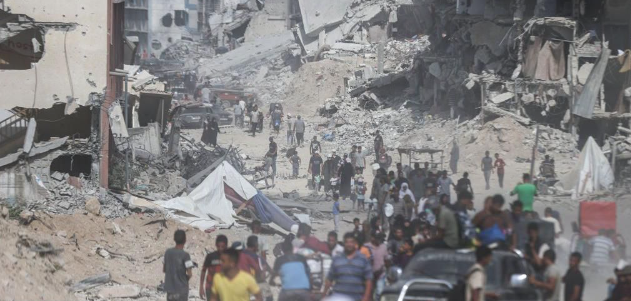Impact of Haniyeh’s Killing on Gaza Ceasefire

The recent killing of Ismail Haniyeh, a prominent Hamas leader, has cast a shadow over the fragile ceasefire in Gaza. This sudden and violent event has stirred concerns about the stability of the truce and the potential for renewed conflict in the region.
Haniyeh, a significant figure in Hamas’ political and military operations, was reportedly killed in an Israeli airstrike. His death marks a critical moment in the ongoing Israeli-Palestinian conflict, raising questions about the future of the ceasefire that has been in place following the last major escalation.
The ceasefire, brokered by international mediators, has been a tenuous arrangement aimed at preventing further violence between Israel and Hamas. The agreement was seen as a necessary step towards a longer-term peace process, with both sides showing a cautious willingness to maintain the truce despite deep-seated animosities.
Haniyeh’s assassination, however, threatens to unravel this delicate balance. Hamas has already vowed to retaliate, with leaders calling for a renewed struggle against Israeli forces. This rhetoric indicates a high likelihood of escalations, potentially leading to a cycle of violence that could shatter the ceasefire.
For Gaza’s civilians, Haniyeh’s killing and the potential breakdown of the truce bring a sense of dread and uncertainty. The ceasefire, albeit fragile, had provided a period of relative calm and an opportunity for reconstruction and humanitarian aid to reach those in need. Renewed hostilities could disrupt these efforts and exacerbate the already dire living conditions in the enclave.
International reactions have been swift, with many urging restraint and a return to negotiations. The United Nations and several countries involved in brokering the ceasefire have called for both sides to avoid escalation and to focus on dialogue. However, the assassination complicates these diplomatic efforts, as trust between the parties is further eroded.
The strategic implications of Haniyeh’s death are significant. For Israel, the targeted killing may be seen as a necessary action to remove a high-value threat. However, it also risks provoking a strong response from Hamas, which could lead to broader conflict. The assassination may also influence internal dynamics within Hamas, potentially leading to a power struggle or a shift in strategy.
From a broader perspective, Haniyeh’s killing highlights the ongoing volatility of the Israeli-Palestinian conflict. It underscores the challenges of achieving lasting peace in a region where acts of violence can quickly derail diplomatic progress. The incident serves as a reminder of the deep-rooted issues that continue to fuel the conflict, including territorial disputes, security concerns, and political
The assassination of Ismail Haniyeh poses a significant threat to the Gaza ceasefire, with the potential to reignite hostilities and undermine recent efforts towards peace. The coming days and weeks will be crucial in determining whether the truce can hold or if the region will descend into another cycle of violence.





